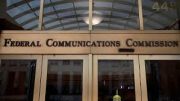By James Reid
FirstNet legislation took direct aim at unsuccessful past attempts at interoperability by mandating that the public-safety network be built to open, commercially available standards. A single FirstNet core ensures interoperability among the network-based applications that first responders will use to share voice, video and data.
This is truly a remarkable time in history for America’s first responders. For the first time ever, they are poised to have access to a truly interoperable, nationwide wireless broadband network for public safety.
After years of determined advocacy on Capitol Hill, first responders’ efforts were rewarded in February 2012 with the enactment of the Middle Class Tax Relief and Job Creation Act, which established the First Responder Network Authority, or FirstNet. In the five years since Congress enacted this law, FirstNet has carried out its statutory mandate by embarking on an audacious plan to oversee the development of the nationwide network.
Through an open and transparent request for proposals (RFP) process, FirstNet selected AT&T as its commercial partner earlier this year to build and maintain the public-private network. At this moment, more than half of the states have decided to “opt-in,” thereby accepting FirstNet’s offer to build, maintain and protect their radio access network over the life of the FirstNet contract. Other states are considering, before the Dec. 28 deadline, whether to “opt-out” and assume the cost—and risks—of deploying their own cellular radio access network (RAN) within their state.
FirstNet has manifested itself as a catalyst for public-safety communications in two distinct areas: first, it serves as a very real guardian against interoperability challenges that have plagued public-safety communications in the decades that preceded the passage of the legislation; and second, it offers a clear path for the adoption of modern communications technology, including applications and modern public-safety user equipment (UE) devices at competitive price points, given FirstNet’s nationwide economies of scale.
That the contract to build and maintain the network was awarded to a single partner was intentional: modern commercial cellular networks, like other IP-based infrastructure, face a daily barrage of threat actors aimed at disrupting the flow of critical information. A single national-network architecture is primed to evolve with technological advancements and implement critical upgrades to keep the network safe and secure.
This opinion article was written by James Reid and appears in Urgent Communications dated December 11, 2017.
To read the full article please click on the button below.
READ FULL ARTICLEJames Reid spent 17 years on Capitol Hill. He was former Chief of Staff to Sen. John D. (Jay) Rockefeller IV, Chairman of the Senate Commerce Committee and sponsor of the Middle Class Tax Relief and Job Creation Act of 2012 that created the First Responder Network Authority (FirstNet). Currently, Reid is a policy consultant and an advisor to “Keeping America Safe” (www.keepingamericasafe.net).




Be the first to comment on "Single Core, Singular Priority: FirstNet policy helps protect public-safety communications"